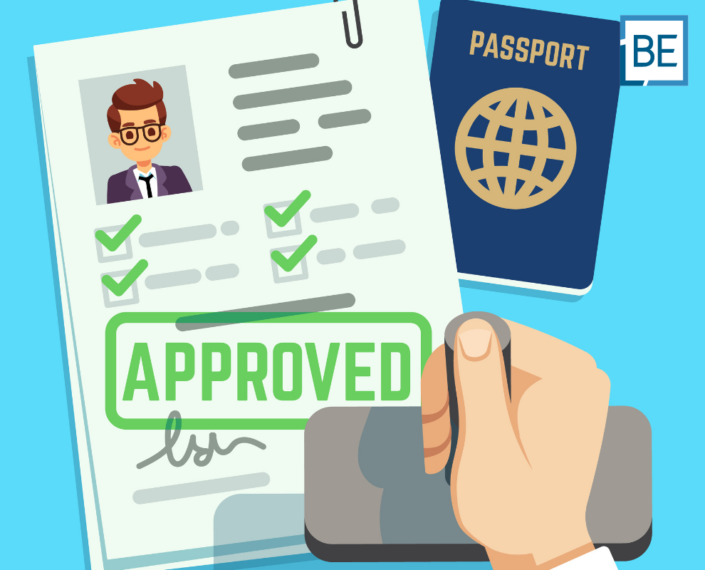Belaws Home ›› Thailand ›› Blog ›› New regulations for digital platforms in Thailand
News
New regulations for digital platforms in Thailand
13/01/2023
Thailand recently approved a Royal Decree relating to digital platforms. The Royal Decree was officially published in the Government Gazette, meaning digital platforms have 240 days (until the 18th of August 2023) to ensure compliance with the regulation.
This decree has introduced a series of new definitions, rules, and regulations for digital platforms, which will be explored in this article.
Key points
- Digital platforms now have until the 18th of August, 2023 to ensure compliance with the regulation.
- Certain digital platform providers now need to notify their users of necessary information when it is updated/released.
- Specific digital platforms located outside Thailand will also be subject to the royal decree and must appoint a coordinating person in Thailand.
- Digital platform providers under the supervision of certain external authorities, or qualify for the Electronic Transactions Commission’s list of exempted digital platform providers, are exempted from the requirement to notify the Electronic Transactions Development Agency (ETDA).
What are digital platforms?
Digital platform operators are intermediary digital platforms that provide a connection space for users to offer goods, services, or intangible property via a computer network, regardless of whether a contract is made on the digital platform.
In general terms, digital platforms refer to websites or mobile applications that provide various services, such as online marketplaces, social media, e-commerce, online banking, and ride-hailing services.
Definitions established by the decree
The following digital platforms are subject to the royal decree, ‘intermediary digital platforms that provide a connection space for “business operators on a digital platform” and “consumers” via a computer network.’
The definitions of “business operators on a digital platform” and “consumers” have been changed and now exclude the offering of intangible assets through digital platforms.
Finally, the royal decree emphasizes that business operators on a digital platform are not included in the consumers’ definition.
What else does the Royal Decree establish?
The Royal Decree also establishes the following criteria for digital platforms to satisfy:
Extraterritorial Effect
Specific digital platforms located outside Thailand will also be subject to the royal decree and must appoint a coordinating person in Thailand. This requirement to appoint a local coordinator does require overseas digital platforms to establish a business presence in Thailand.
Digital Platform Certification Mark
The royal decree introduces an ETDA certification mark for digital platforms.
Currently, displaying the mark appears to be optional. It is expected that more specific rules, procedures, and further details will be announced in the future.
Data Sharing
The royal decree authorizes the ETDA to request or collect information about a digital platform from other state agencies, as prescribed by the law or contractual terms.
Digital Platform Providers’ Obligations
The royal decree now obligates certain digital platform providers (a complete list will be released later by the ETDA) to notify their platform users of the necessary information before or at the time of service or upon any amendment to the information (such as altered terms and conditions). Examples include:
- Conditions for provision, suspension, or cessation of service (including transparent and fair fees, remuneration, and expenses);
- Criteria used to rank, recommend, or advertise goods or services;
- Satisfaction ratings and feedback from users;
- Access and usage of data shared with business operators on the digital platform;
- Inquiries, complaints, dispute settlement, and timeframe for dispute settlement;
- Responses to unlawful or sensitive content (including content rating practices); and
- Any other matters as deemed appropriate.
Exemptions to the notification
Any digital platform providers who are under the supervision of other authorities, such as the Bank of Thailand and the Securities and Exchange Commission, or qualify for the Electronic Transactions Commission’s list of exempted digital platform providers are exempted from the requirement to notify the Electronic Transactions Development Agency (ETDA) of the operation of its digital platform.
The commission also maintains the right to exempt any other digital platform service it deems fit to do so.
How can Belaws help?
You can talk directly to one of our experts for more information about digital platforms in Thailand.
Please note that this article is for information purposes only and does not constitute legal advice.
Our consultations last for a period of up to 1 hour and are conducted by expert Lawyers who are fluent in English, French and Thai.
Consultations can be hosted via WhatsApp or Video Conferencing software for your convenience. A consultation with one of our legal experts is undoubtedly the best way to get all the information you need and answer any questions you may have about your new business or project.
USD 150
Up to 1 hour
Online payment (Paypal or Credit card)
Legal consultation can be conducted in English, French or Thai
Legal consultations are handled by experienced lawyers from the relevant fields of practice
Frequently asked questions
Do you pay tax on crypto in Thailand?
The transfer of cryptocurrencies or digital tokens via a registered exchange in Thailand are now exempt from VAT (7%). This new legislation has been retroactively enforced from April 1st 2022, and will last until December 31st 2023.
Which country is tax free for cryptocurrency?
Examples include, Germany, Belarus, El Salvador, Portugal, Singapore, Malaysia. and Malta.
Is cryptocurrency legal in Thailand?
Yes Cryptocurrency is legal in Thailand. The Thai Government has been enacting and releasing legislation which is designed to create a legal framework for Cryptocurrencies in Thailand.
Is Binance legal in Thailand?
Binance has not been issued with the required licence from Thailands Security and Exchange Commission.
Does Thailand have capital gains tax?
Yes, Thailand has Capital Gains Tax and is set at a rate of 15%.
Related articles
Subscribe today
Subscribe today
To our newsletter for all the latest legal news
in South East Asia, Belaws updates and
special promotions on our services.
To our newsletter today for all the latest legal news in South East Asia,
Belaws updates and special promotions on our services.







